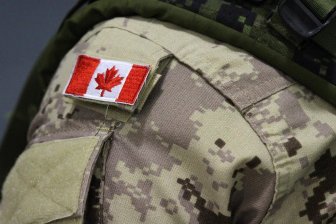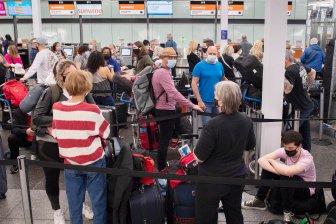Pediatric hospitals across Canada are struggling with the surge of serious childhood respiratory viruses and flu cases but in Kelowna, the situation has yet to reach dire levels.
There are 12 pediatric neonatal intensive care beds at Kelowna General Hospital and nine of them are full, meaning that the hospital unit is at 75 per cent capacity.
“The unit has been busy at KGH, but it has not been overcapacity in recent days,” a representative of Interior Health said Wednesday morning.
Health Minister Adrian Dix pointed out that because of the relatively low number of beds available, capacity can swing from high to low, quite dramatically in a day.
That said, another measure of how hard illnesses are hitting the school-age population of any given city is the absentee rate.
Story continues below advertisement
“So far they are 10.14 per cent, and our trigger (for concern) is between 20 to 25 per cent,” said Kevin Kaardal, superintendent for Central Okanagan Schools.
“We are seeing a rise in illness, but there was a long weekend and lots of parents excused (children).”

1:41
Children in hospital due to respiratory illnesses
Even though Okanagan schools and hospitals aren’t being hard hit by illness at the moment, the provincial health officer said that doesn’t mean that these illnesses aren’t circulating.
“One of the things that we have been watching over time is physician visits and community visits to healthcare practitioners … for respiratory symptoms,” she said.
In BC as a whole, the data shows that there’s been “a gradual and a more steep increase within the last two weeks of respiratory illness,” Dr. Henry said.
trending now
-

Canadian military rushing to buy new weapons after lessons learned from Ukraine war
-

From $600 to $2K: Sunwing nearly quadruples baggage compensation after criticism
trending now
-

From Hollywood to Hastings: Vancouver actor recounts struggle with addiction and recovery
-

BC psychological pushing experts for public mental health system
Story continues below advertisement
“In British Columbia, if we look at that and break it down by age, we see that that increase has been driven by respiratory illness in young people and that should be no surprise. We’ve been seeing younger people needing ICU care and younger people going to emergency departments and seeking treatment across the province.”
A new system to address the surge in admissions for pediatric patients was activated and it will coordinate pediatric resources and respond rapidly to increased demand across the province.
It will include an improvement to emergency department triage processes and will connect patients with options at the community care level rather than unnecessary hospital stays or long emergency department waits.
dr Henry also made a call for vaccination uptake for both flu and COVID-19 vaccines.
“A year ago, we didn’t have vaccines for children we do now,” she said, making reference to COVID-19, specifically. Flu vaccines for children have long existed. Both, she said, would make a big difference.
“That’s an important piece of protecting children from a virus that we know doesn’t cause severe illness in most children, but can. We know that children can also be part of transmitting it within households and families, particularly.”

1:57
Seasonal respiratory illnesses affecting kids early in southern Alberta: expert
dr Henry said more than 86 per cent of people five years old and over have received at least two doses of COVID-19 vaccines.
Story continues below advertisement
“That means that we have a higher level of immunity than we’ve ever had and that, we know, gives us longer-term protection against severe illness, even in people who have compromising conditions and in older people,” she said.
Many have been asking about masking as viruses and illnesses rise and Dr. Henry said that it’s a tool that needs to be used but she doesn’t believe there’s a need for a mandate.
“Masks are a tool that we can all use during this time and in every respiratory season,” she said.
“We should have one with us. We should use it in situations where it makes sense and it may differ depending on the situation.”
dr Henry said she will wear a mask one day if she’s on the bus, it’s crowded, the windows are closed and she has the sniffles.
“But on another day, if I’m feeling fine and there is lots of space and good ventilation, I may choose not to and that’s OK. … We have to bring masks in as a tool that we can use when it’s appropriate and when it’s necessary.”
© 2022 Global News, a division of Corus Entertainment Inc.








